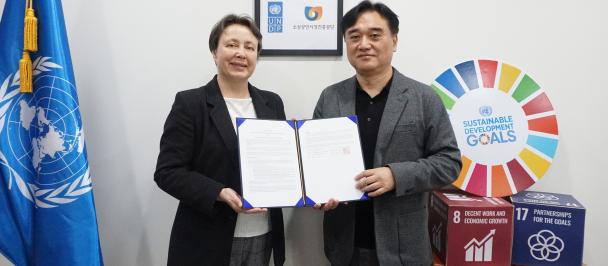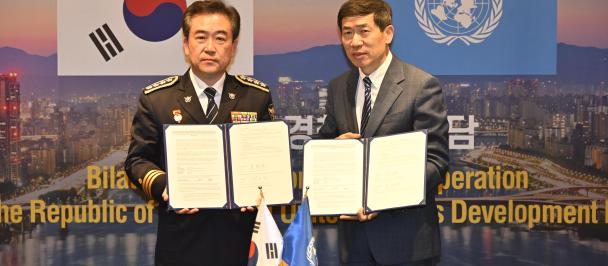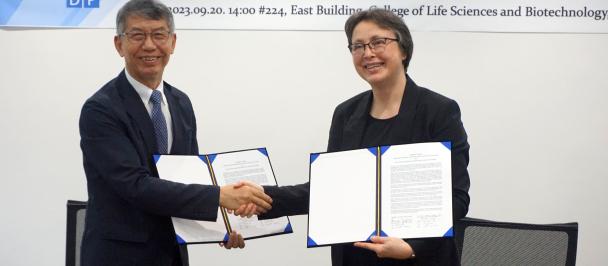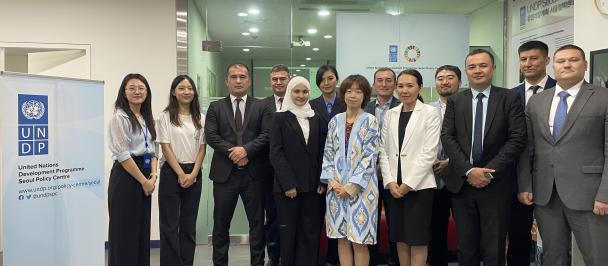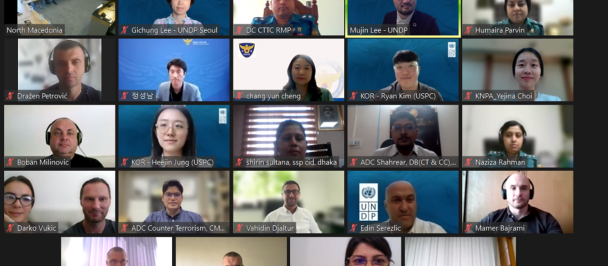New SDG Partnerships initiated with Mongolia, Uzbekistan and Kosovo on sharing ‘Clean Portal’, Korea’s digital system for reporting corruption and public interest violation
November 3, 2022
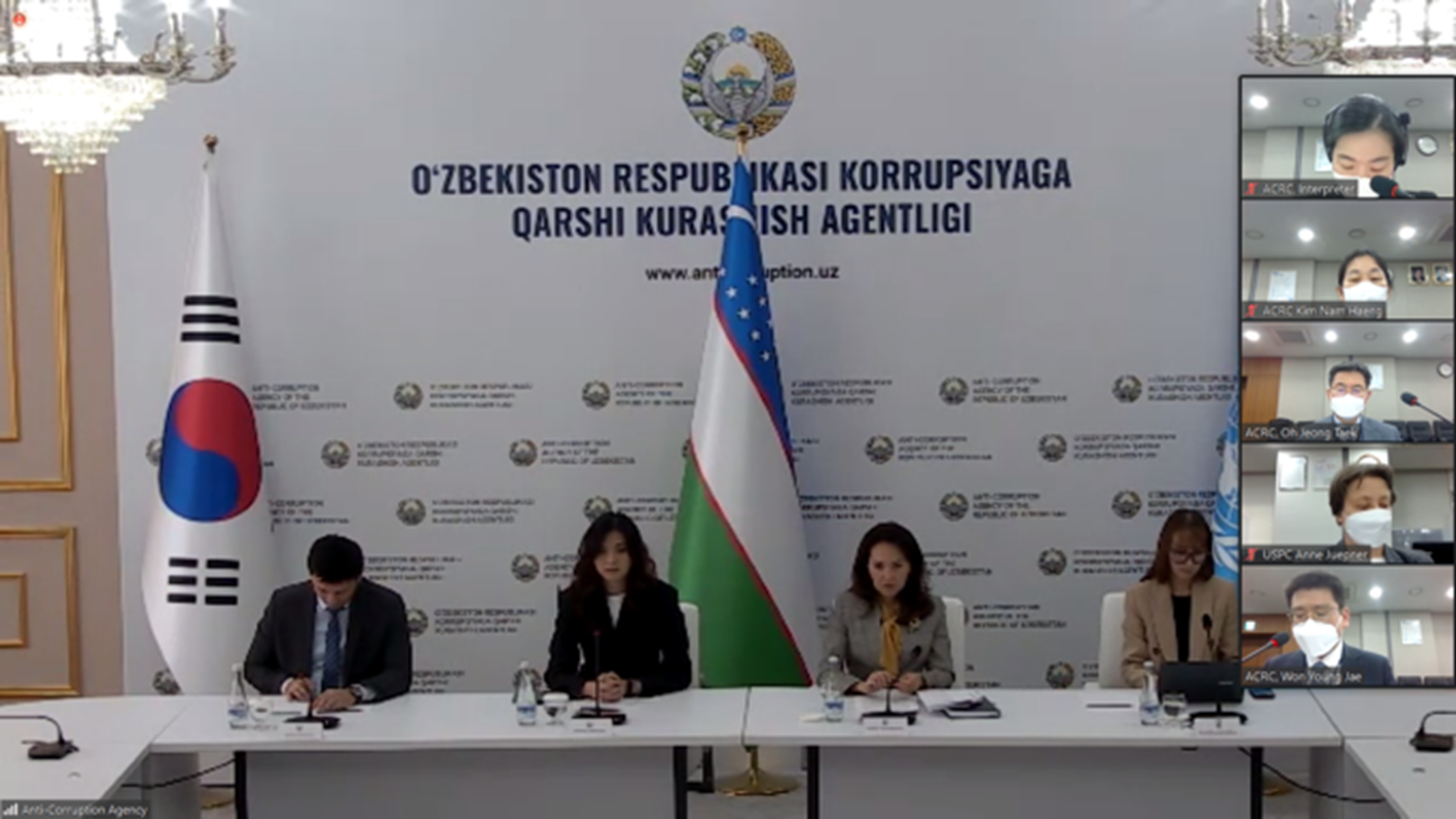
REFERENCES TO KOSOVO SHALL BE UNDERSTOOD TO BE IN THE CONTEXT OF UNITED NATIONS SECURITY COUNCIL RESOLUTION 1244 (1999).
On 3 November 2022, UNDP Seoul Policy Centre (USPC) conducted a project inception webinar to launch new SDG Partnerships on the ‘Clean Portal’ – a Korean digital platform for reporting corruption and public interest violation – with the Anti-Corruption & Civil Rights Commission (ACRC) of Korea, UNDP Country Offices of Mongolia, Uzbekistan and Kosovo, and their respective anti-corruption agencies. The webinar focused on introducing the Clean Portal’s operation system and identifying related challenges and needs in processing reported corruption cases.
Following active partnerships with ACRC since 2015 on sharing two of its main policy tools - Anti-Corruption Initiative Assessment (AIA) and Corruption Risk Assessment (CRA), USPC designed a new SDG partnership with ACRC to enhance transparency and accountability in partner countries through digitalization, allowing partners to benchmark Korea’s expertise and model practices. Following a careful selection process, USPC established promising partnerships with Mongolia, Uzbekistan and Kosovo on combating corruption by referring to Korea’s Clean Portal platform.
The Clean Portal is an innovative digital anti-corruption reporting system developed by ACRC that aims to encourage the public to report infringements and public interest violations without fear of retaliation. Moreover, it provides an effective tracking and monitoring system that ensures effective processing of reported cases via enhanced coordination with various public institutions.
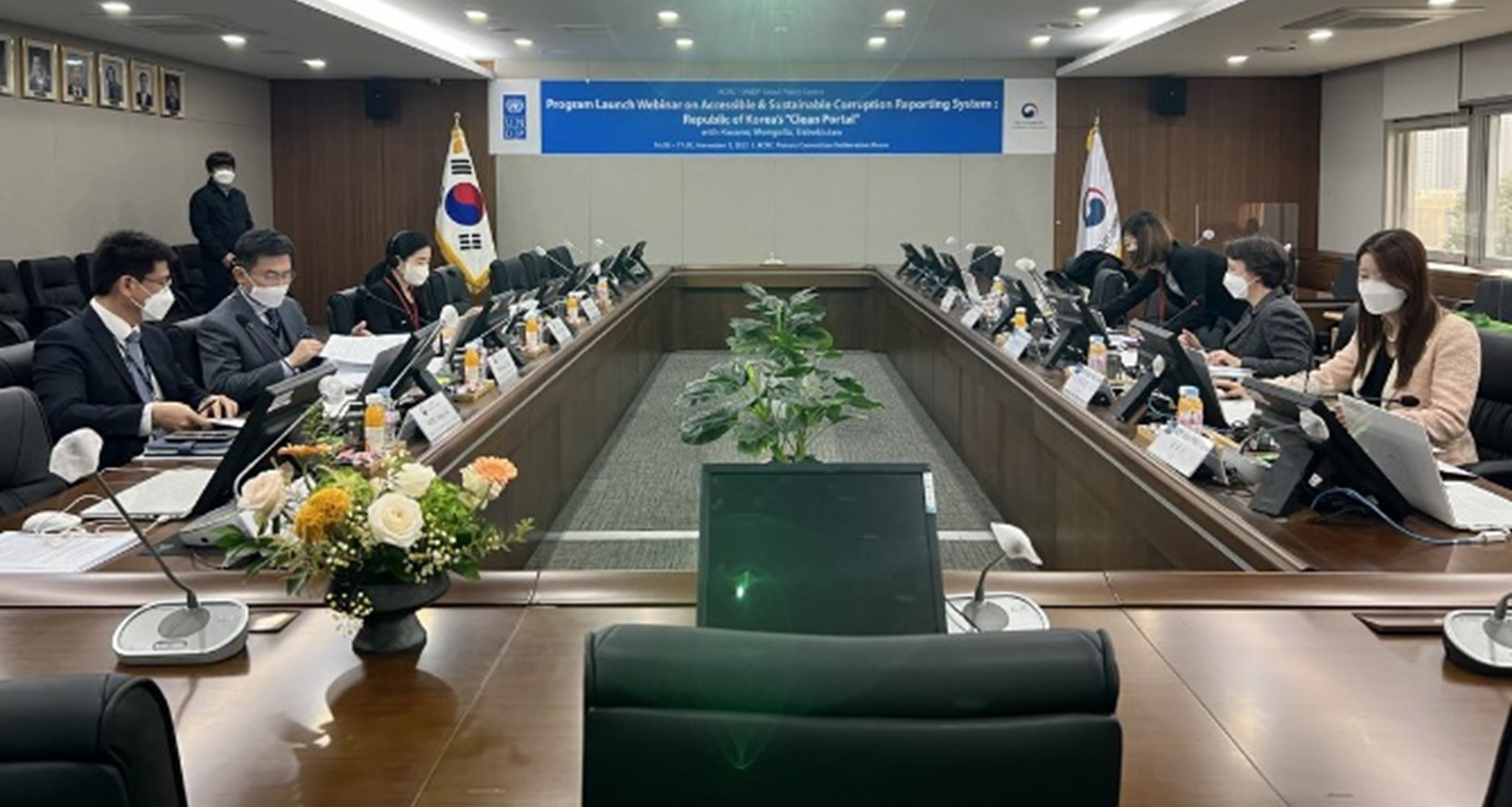
To kickstart the partnership, the webinar began with opening remarks delivered by Mr. Young Jae Won, Director of the International Relations Division of ACRC on behalf of Ms. Jeon Hyun-Heui, Chairperson of ACRC. Welcoming the participants of this event, he introduced the major features of the Clean Portal and emphasized the significance of the joint project.
Dr. Anne Juepner, Acting Director of USPC, expressed her gratitude to ACRC for this long-lasting and close cooperation ito fight corruption with global partners and expressed her expectations for the upcoming co-creation of an adequate corruption reporting system tailored to the local contexts of respective countries.
Ms. Dulamsuren D. (Head of Office of National Strategy on Anti-Corruption in Mongolia), Ms. Lazima Onta-Bhatta (Deputy Resident Representative of UNDP Mongolia), Ms. Umida Tukhtasheva (Deputy Director of Anti-Corruption Agency of Uzbekistan), Ms. Matilda Dimovska (Resident Representative of UNDP Uzbekistan), Mr. Yll Buleshkaj (Director of the Kosovo Agency for the Prevention of Corruption), and Ms. Maria Suokko (Resident Representative of UNDP Kosovo) also expressed their deepest appreciation for this cooperative work and promised active commitments to this joint effort to enhance public transparency.
To promote mutual understanding, a comprehensive overview of the Clean Portal was provided by Mr. Jeong Taek Oh, Director of the Inspection Planning Division of ACRC. Mr. Oh addressed the need to establish a digital reporting system and shared Korea’s experience in developing the platform in a phased process. The key features and benefits of the Clean Portal for all stakeholders, including the anti-corruption agency and general citizens, were also highlighted.

Each partner country presented their challenges and plans to upgrade their existing mechanisms by benchmarking Korea’s Clean Portal system.
Ms. Dulamsuren D., Head of Office of National Strategy on Anti-Corruption in Mongolia, expressed eagerness for the expertise and technical support from ACRC and USPC to be utilized to evaluate the efficiency and effectiveness of the current process of receiving, checking, and resolving public interest violations and corruption reports in Mongolia. Mongolia anticipates creating an integrated digital action mechanism to combat corruption and protect whistleblowers and reporters.
Ms. Umida Tukhtasheva, Deputy Director of Anti-Corruption Agency of Uzbekistan (ACA) and Ms. Aynura Smailova, Chief Inspector of the International Cooperation Division of ACA also pointed out the challenges of their current digital reporting system, ‘E-Anticor.uz’, as the platform lacks an automated system for processing reports and monitoring the review process. They added that the country requires knowledge enhancement in the area of whistleblower protection measures, and ACA also emphasized the necessity of increased integration with other relevant institutions.
Ms. Fjolla Raifi, Project Manager of UNDP Kosovo, highlighted that this project aims to increase public trust in Kosovo’s anti-corruption efforts by enabling citizens to report allegations of corruption, and ensure proper handling and conclusion of cases through a new platform to be developed.
Ms. Ahjung Lee, Governance Portfolio Manager and Policy Specialist at USPC, closed the webinar by expressing her gratitude to ACRC, partner UNDP Country Offices and the anti-corruption agencies for their reciprocal efforts to enhance transparency and accountability.
The webinar helped to share the lessons learned from developing and operating Korea’s Clean Portal and discuss future collaboration on building an effective digital corruption reporting mechanism tailored to specific contexts in each country.
* UNDP Seoul Policy Centre (USPC) shares Korea’s tested-and-proven policy tools with other countries through SDG Partnerships. SDG Partnerships provide a combination of support, including partnership development with Korean institutions, seed funding, technical assistance, and policy advisory services. It utilizes UNDP’s global policy network of country offices and the policy expertise and know-how of partner organizations, such as ACRC of the Republic of Korea.

 Locations
Locations